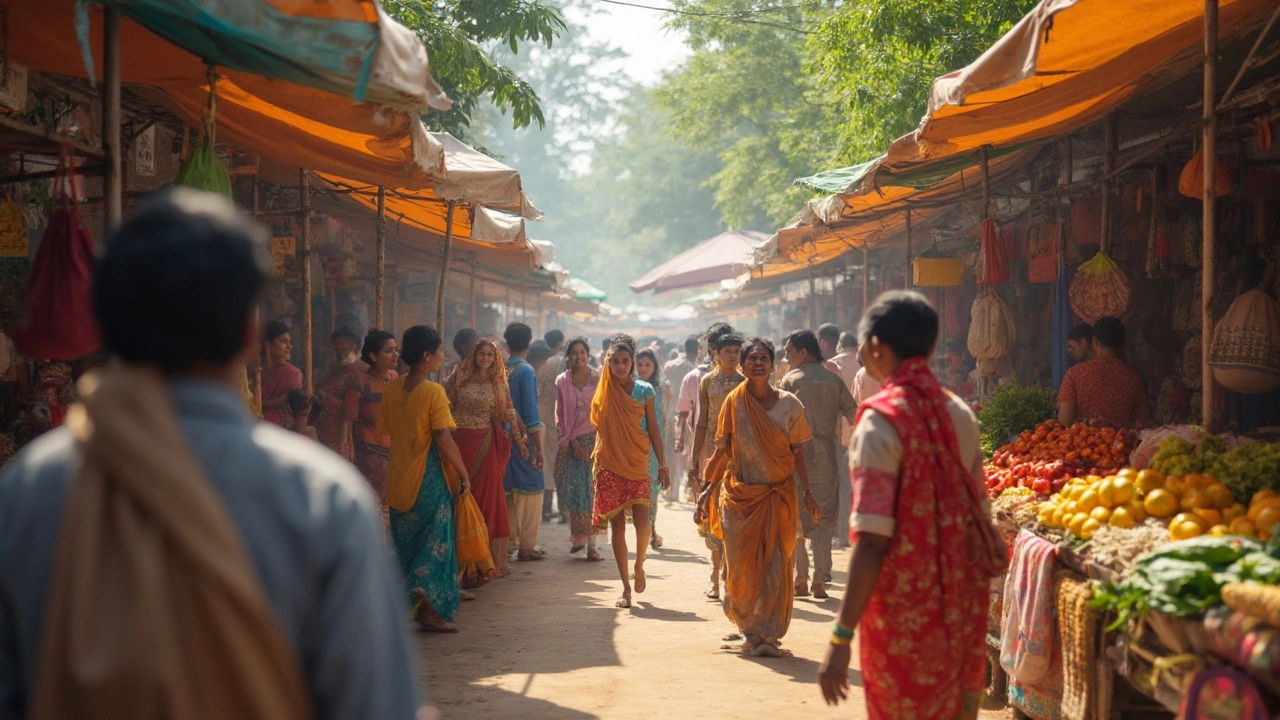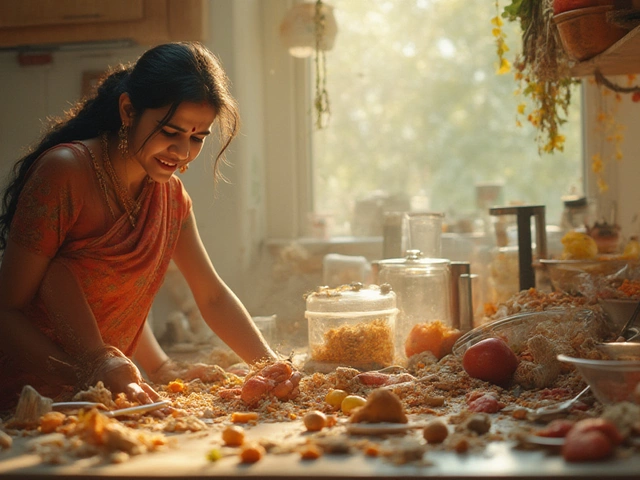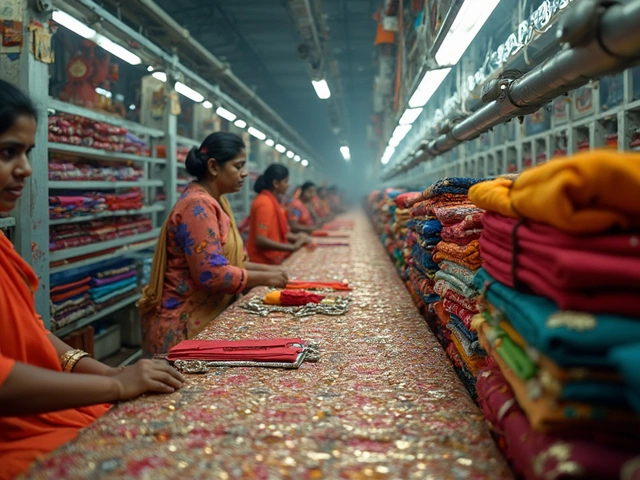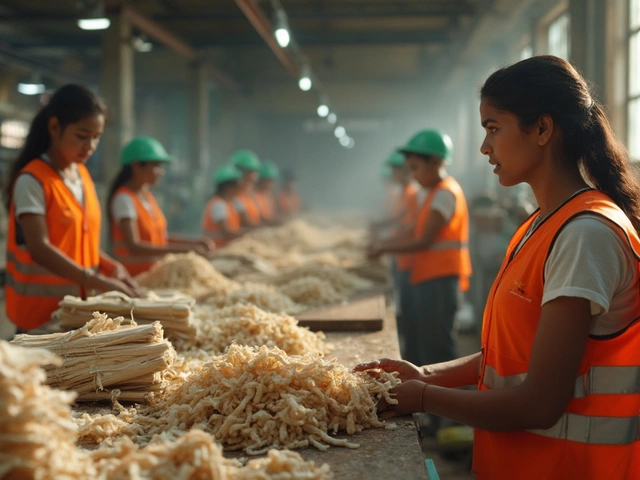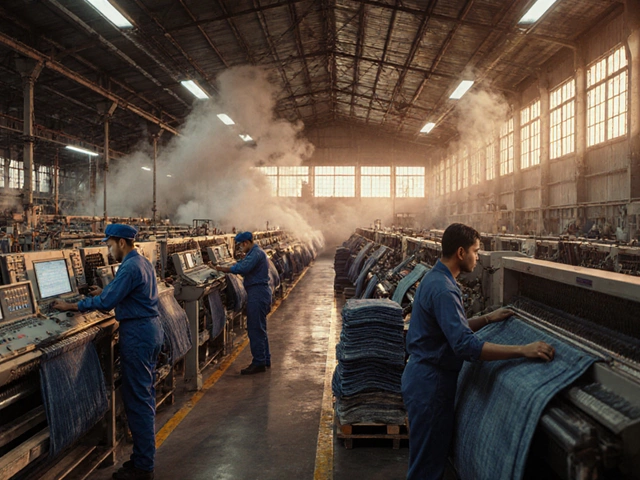Think it’s possible for a whole country to be completely plastic free? The idea sounds amazing, but the reality is complicated. Dive into any city, from Berlin to Bhutan, and you’ll spot plastic somewhere—maybe a bottle cap, a food wrapper, or even a bag used for trash. Still, some countries are famous for their tough fight against plastic waste, putting strict bans and crazy-creative solutions into action.
Some nations have outlawed single-use plastics like bags and straws, while others target plastic in packaging or import bans for certain materials. Even with the boldest rules, though, you won’t find a place on Earth that’s entirely free from plastic. The real story is about which countries have cut down on plastic the most, how they handled the switch, and what it means if you’re running a business or just passing through as a traveler.
So, which countries really walk the talk when it comes to plastic? And what can plastic manufacturing companies learn from their approach? Let’s dig into the facts and some surprising workarounds people use, from banana leaf packaging in Thailand to Germany’s bottle return culture—because going plastic free isn’t just about bans; it’s about changing habits, business models, and everyday choices.
- What Does 'Plastic Free' Actually Mean?
- Countries That Have Pushed Hard Against Plastic
- Plastic Bans and How They Work in Practice
- The Role of Manufacturers and Local Businesses
- Tips and Insights for Companies and Travelers
What Does 'Plastic Free' Actually Mean?
If you search for a world or a country that's totally plastic free, you’re going to hit a wall. No place is truly 100% without plastic. The term 'plastic free' usually means something a lot less perfect and a lot more realistic. Most of the time, it means there's a serious effort to ditch single-use items like bags, bottles, straws, and takeout containers. Some places include rules for events, packaging, or food businesses. But even with these rules, nobody’s gotten rid of plastic everywhere. It’s more about slashing how much is used and making smarter swaps wherever possible.
Take reusable packaging policies or nationwide bans—these are great moves, but you’ll still spot plastic in medical gear, electronics, or car parts. Some eco-campaigns push for bigger goals, but even their leaders admit there’s a long way to go. As the UN Environment Programme says,
“No country is entirely plastic free, but a growing number are taking bold action to curb the use of single-use plastics.”
You’ll also see different systems pop up depending on local habits, what’s available, and how strict governments want to be. Some countries are all-in on banning the plastic bag. Others focus on taxing plastic or rewarding folks for recycling. Most countries build their own version of 'plastic free' around these pieces:
- Banning or taxing single-use plastic products
- Setting up deposit systems for bottles and containers
- Promoting plastic-free alternatives (like paper, glass, or plant-based options)
- Educating citizens and businesses about waste
For a fast breakdown, here’s a look at how some popular countries define and tackle ‘plastic free’:
| Country | Main Focus | Notable Action |
|---|---|---|
| Rwanda | Single-use plastic bans | Banned non-biodegradable plastic bags since 2008 |
| Germany | Bottle deposit schemes | Pfand refunds for plastic bottles encourage recycling |
| India (some states) | Citywide plastic bans | Mumbai’s full ban on single-use plastics in 2018 |
| Thailand | Retail bans & alternatives | Major stores stopped offering free plastic bags since 2020 |
The term 'plastic free country' is usually more of a goal than a finish line. Even the toughest rules need buy-in from businesses and the public. And for plastic free country policies to really work, manufacturers have to rethink what they make and how they sell it. It’s less about perfection and more about steady progress.
Countries That Have Pushed Hard Against Plastic
If you’re searching for places that have really gone after their plastic free country goals, a few stand out. None are totally plastic-free, but their efforts are tough to ignore. Some governments have put bans in place, while others slam heavy taxes on plastic producers or set strict recycling rules most of us would find extreme. Let’s get real about what they’ve achieved.
Rwanda is probably the poster child for plastic bag bans. Since 2008, you can’t legally make, import, use, or sell plastic bags in the whole country. Visitors even have to empty their suitcases of any plastic at the border. If you try to sneak plastic in, you might get a hefty fine or see your bags confiscated. You’ll notice their streets are shockingly clean compared to tons of other places—plastic is just not lying around.
Kenya followed suit in 2017, unleashing the world’s strictest ban on plastic bags: use, manufacture, or even possession can hit you with thousands of dollars in fines or even jail time. Supermarkets now only offer reusable cloth bags, and open-air markets wrap produce in leaves or newspapers instead of plastic film.
It’s not just Africa making moves. Bangladesh was the first to ban thin plastic bags way back in 2002, after flooding linked to clogged drains. Their move got the ball rolling for other Asian countries. Meanwhile, the European Union made headlines with its single-use plastics directive in 2019, which wiped out plastic straws, plates, cutlery, and expanded polystyrene food containers across 27 member states by 2021.
Want numbers? Here’s a snapshot of how some countries have handled single-use plastic:
| Country | Year of Major Ban | Key Measures |
|---|---|---|
| Rwanda | 2008 | Plastic bags banned countrywide, enforced at borders |
| Kenya | 2017 | Severe fines/jail for plastic bag use or production |
| Bangladesh | 2002 | Ban on lightweight plastic bags in cities and stores |
| European Union | 2021 | Single-use plastic banned across many categories |
| Vanuatu | 2018 | Ban on plastic straws, bags, and takeaway containers |
Places like Vanuatu, a tiny Pacific nation, have even banned plastic straws and polystyrene containers altogether—a serious move for an island that relies on food imports. Germany and Sweden didn’t go the full ban route, but they have top-notch bottle return schemes; in Germany, over 90% of plastic bottles are recycled thanks to a cash deposit system that actually makes it worth your while to bring back empties.
If you’re a company or a tourist, expect local alternatives and rules that can change how you do business or shop. Usually, you’ll get offered paper, cloth, or even banana leaves instead of a typical supermarket bag. In some places, you simply have to bring your own container or get creative. These countries prove aggressive laws and big cultural shifts really can keep plastic waste out of mountains and oceans—and even keep streets tidy for everyone.
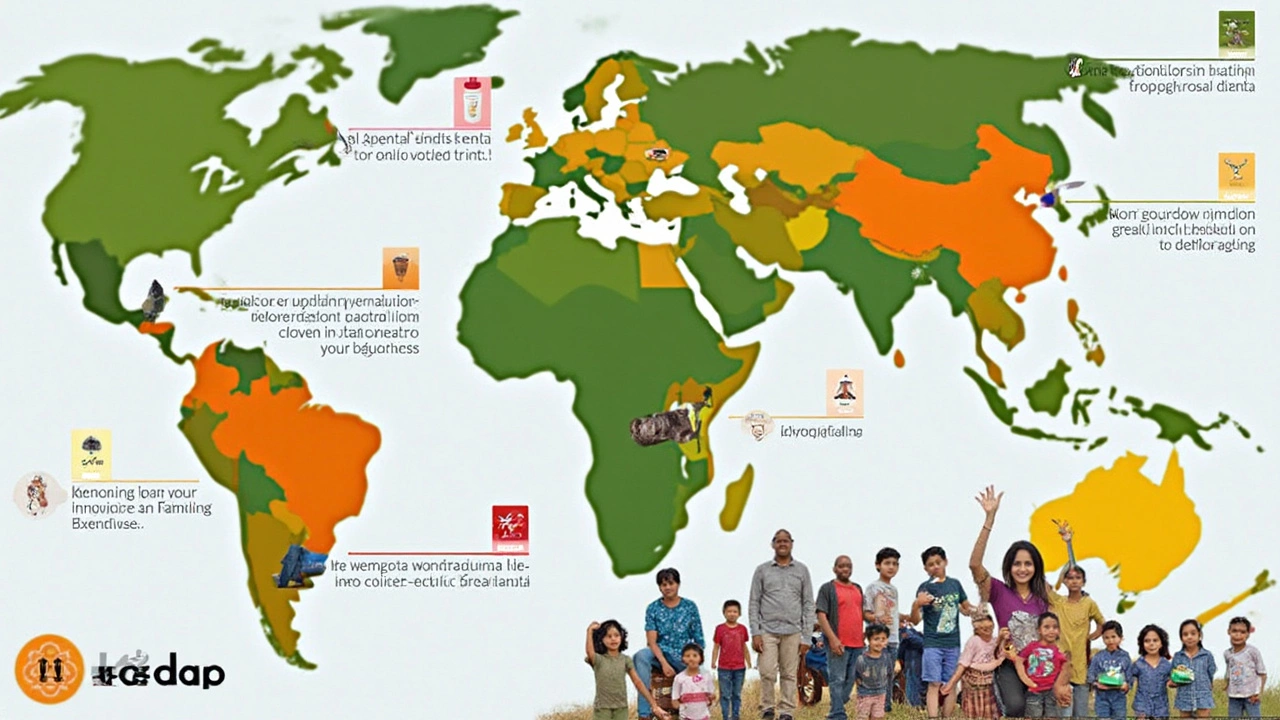
Plastic Bans and How They Work in Practice
Let’s get real—plastic bans sound nice on paper, but how do they actually play out? Countries tackle this challenge in all sorts of ways, and the results are mixed. For instance, Rwanda has banned plastic bags since 2008 and is known for its clean streets. Try bringing a plastic bag into Kigali airport, and there's a good chance customs will confiscate it on the spot. Rwanda’s rules aren’t just for show. Shops, vendors, and travelers work around them by using paper, cloth, or even banana leaves for carrying things.
India is another massive player. In 2019, India announced a plan to tackle single-use plastics nationwide. Some regions, like the state of Sikkim, set the trend even earlier—ditching plastic water bottles from government offices and schools way back in 2016. But with over a billion people, enforcement is inconsistent. Some cities have full-on plastic police squads, while in smaller towns, plastic still slips through the cracks.
Here’s what usually goes down when a plastic ban hits:
- Governments set deadlines and choose what types of plastics are out (bags, straws, cutlery, etc.).
- Shops, street vendors, and food chains scramble for replacements—paper bags, reusable totes, bamboo utensils, glass bottles, or quirky stuff like coconut shells.
- People adapt, but there’s always pushback. Sometimes customers complain about new bag fees; sometimes suppliers struggle to get enough alternatives.
- Punishments can get intense. In Kenya, breaking the plastic ban can land you a $40,000 fine or jail time—even for using a simple shopping bag.
Here’s a quote that sums up the complexity from Erik Solheim, the former head of the UN Environment Programme:
“Plastic pollution is a defining environmental challenge. While bans are a strong step, success only comes when government, businesses, and people work together to change how we make, use, and dispose of plastics.”
Some bans succeed because they come with strong education campaigns, and local industries get support to find or make new, eco-friendly products. Others flop because nobody enforces the rules, or the alternatives are just too expensive or hard to find.
If you’re in the plastics business, keeping up with fast-shifting rules can be a headache. But watch how these bans shape production, from compostable bags to plant-based bottles. It’s not just governments steering the ship—consumers want greener options, too, and that changes the whole industry.
The Role of Manufacturers and Local Businesses
If you ask why some countries make real progress on plastic, it mostly comes down to how manufacturers and local shops adapt. When governments ban things like single-use bags or cups, the job of finding replacements falls on them. And the results are actually pretty interesting.
Take Rwanda, often listed as a leader in this fight. Since banning plastic bags nationwide back in 2008, Rwandan businesses shifted to paper, cloth, and even banana leaves for packaging. Small grocery shops and big brands both faced huge fines for breaking the rules. The switch wasn’t easy—but today, Kigali’s streets are among the cleanest in Africa.
Meanwhile, in India, the state of Maharashtra kicked off a ban that hit plastic manufacturers hard. Factories producing bags, cups, and straws either had to change what they made, spend on new machines, or close. Some switched to biodegradable alternatives, others started recycling more aggressively. Here’s the catch though: not all "compostable" plastics break down as easily as promised, so companies have to double-check what they use.
"For plastic bans to work, manufacturers must be part of the solution, not just the problem. Innovation and grit from local companies make or break these policies." — International Solid Waste Association
Food chains are another story. In Taiwan, local businesses swapped out single-use utensils for metal or plant-based ones. Germany's famous bottle-return system makes it simple for drink companies and buyers to reuse and recycle: about 98% of refillable bottles come back instead of being tossed. That's wild if you think about it.
| Country/Region | Year Ban Started | Main Plastic Alternatives Used | % Reduction in Plastic Waste* |
|---|---|---|---|
| Rwanda | 2008 | Papers, cloth, banana leaves | 60% |
| Germany | 2003 (Bottle Return Law) | Reusable glass & plastic bottles | 98% return rate |
| Taiwan | 2019 (Utensil Ban) | Steel, bamboo, PLA utensils | 40% |
*Percentages are from official environmental agency reports (2021-2024).
If you run a plastic manufacturing business, pay close attention to these shifts. Customers want eco-friendly options, and some governments even give tax breaks if you switch to greener products. Shops that swap quickly often win more loyal buyers. Not feeling ready to give up all plastic? Start by offering alternative packaging or setting up recycling bins at your store. You don’t have to go zero-plastic overnight, but every step counts.
- Explore bioplastics or paper-based goods that meet local rules.
- Check out which products are truly compostable—not every "eco" label means the same thing.
- Connect with recycling companies for take-back or reuse programs.
- Watch how leading brands in your region make the switch. Sometimes, copying a smart idea works just fine.
It’s not just about what you can’t do anymore—it’s about finding out what works better for your business and the planet. And the truth is, customers notice when you actually change, not just talk.
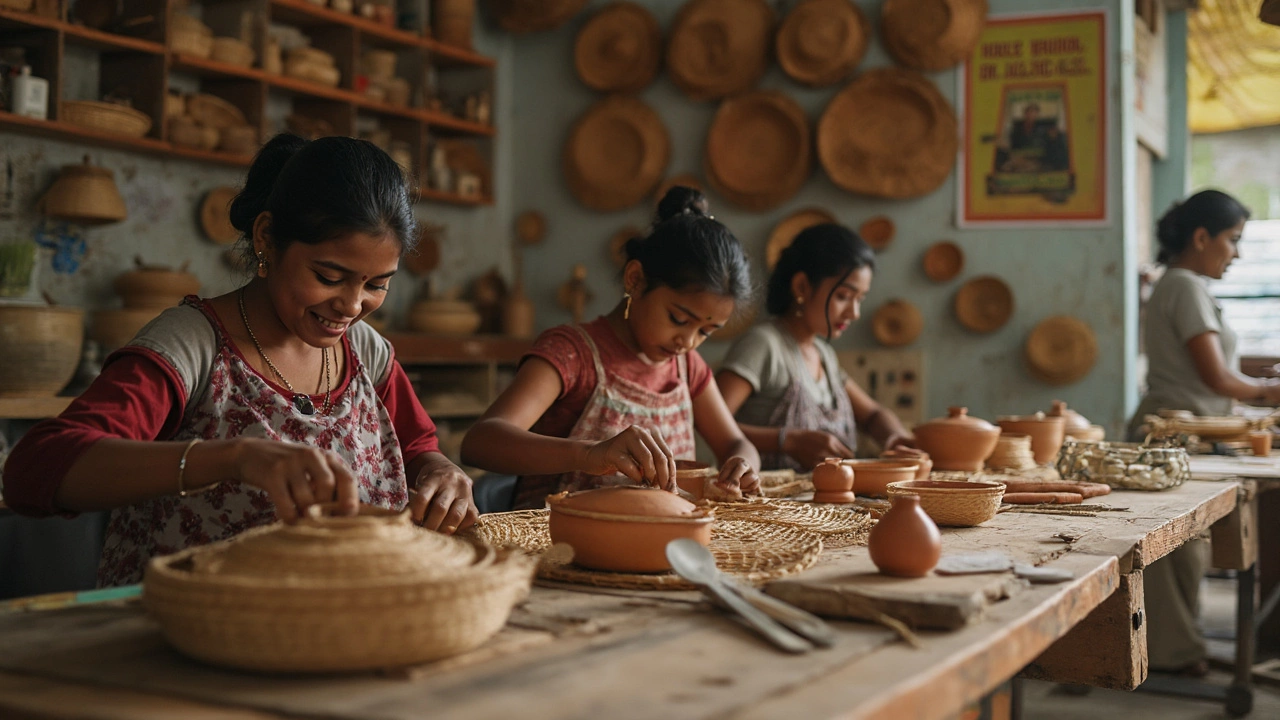
Tips and Insights for Companies and Travelers
If you think going "plastic free" is just about tossing out a few plastic bags, think again. For businesses and travelers, especially those touching the plastic free country hot spots, it’s about understanding local laws, habits, and finding clever workarounds when the usual throwaway cup just won’t cut it.
Let’s get practical. If you run a business—say, a restaurant, hotel, or retail shop—you’re on the front line. Places like Rwanda, Kenya, and certain cities in India fine shops for handing out plastic bags. That’s not a slap on the wrist; in Kenya, it’s up to $38,000 or jail time. Tourists in Rwanda have had their luggage checked at the airport for plastic bags.
Look at what smart businesses are doing:
- Switch to paper, cloth, or even banana leaf wrappers for takeout.
- Use glass, metal, or high-quality plastic packaging you can wash and refill—like German bottle return systems.
- Partner with recycling firms or launch in-house return programs. Big companies in Europe use deposit schemes, offering customers a cash-back for returning packaging.
Travelers should carry a reusable water bottle, a tote bag, and maybe a metal straw in places with strict plastic bans. It’s not just the eco-thing to do; in some airports (like Kigali in Rwanda), you can actually have plastic bags confiscated from your luggage.
Check this quick data snapshot to see how plastic bans and habits line up around the world:
| Country | Plastic Bag Ban Year | Penalty for Breaking Ban | Popular Alternatives |
|---|---|---|---|
| Rwanda | 2008 | Up to $150 fine, confiscation at border | Paper bags, baskets |
| Kenya | 2017 | $19,000-$38,000 or jail | Cloth/reusable bags |
| Germany | 2022 (single-use ban) | Business fines | Deposit bottles, reusable containers |
| India (select states) | 2018 | Store closures, city fines | Fabric bags, leaf plates |
One more thing—if you’re sourcing products or raw materials, always check what type of plastics are banned locally. In India, some states allow plastic above a certain thickness. In Germany, single-use is out but certain packaging in food and medicine is still okay. Don’t assume what works in France will work in Rwanda.
The biggest wins come when companies treat waste reduction like a creative challenge, not just a rule to be dodged. Travelers, on the other hand, earn serious eco-points (and avoid fines) just by coming prepared. The less you rely on single-use stuff, and the more you reuse, the smoother your trip or your business will run in these "plastic free" champions.
